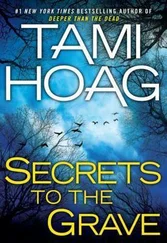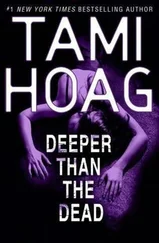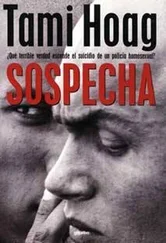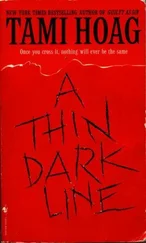The people in law enforcement want to solve a case. Their jobs are at stake. Greg Hewitt would solve my problem—for money. Their stakes aren’t high enough. The outcome doesn’t mean to them what it means to me or to Leah.
It might be a game to Roland Ballencoa. He might enjoy cat and mouse. But the idea that any of this has been a game makes me furious. This is my life, the lives of my daughters, the life of my husband, the life of our dreams. I have to fight for those things.
I am tired of waiting for someone else to find an answer, to find evidence, to find my daughter, to find her body. I can’t wait for technology to advance. Waiting has gained me nothing but a simmering hatred that burned away what was good in me.
I used to be a good person, a good mother, a good wife. Now I am consumed with anger. Blinded by my obsession, I have put my youngest child in harm’s way. I have nothing left to give to anyone.
Winston Churchill once said, “If you’re going through hell, keep going.” I have been going, and have kept going. It’s time for that journey to reach its destination. I’ve been in hell too long.

The Walther was clean, oiled, and loaded. Seven in the clip, one in the chamber.
Lauren had cut the legs off a pair of control-top hose and fashioned a holster of sorts from the panty. She was able to slip the gun inside the stretchy waistband and have it held snugly against her belly. No chance of it falling from the loose waist of her jeans, which no longer fit.
She put on one of Lance’s old black T-shirts and tied the overlong tail up in a knot at her right hip. The shirt was baggy enough to hide the outline of the gun and allow her quick access to it.
She had a drink to steady her nerves, then got behind the wheel of her car and headed toward the home of Roland Ballencoa.

“That’s crazy,” Hicks said.
Mendez looked at Danni Tanner. She’d had a hand in this case from early on. She knew Lauren Lawton better than any of them.
“That’s Lauren,” she said with resignation. “Oh, man . . . She really is stalking him.”
Mendez went to the whiteboard and tapped a finger under the name Greg Hewitt. “A week’s pay says he’s a PI—license or no. He found out Ballencoa was moving here. Lauren followed him.”
“That’s at least three different kinds of crazy,” Hicks said. “She bought a house here—”
“She didn’t buy a house,” Mendez corrected him. “The place belongs to friends.”
“She brought her daughter here,” Hicks said with more gravity.
Mendez replayed the conversation they had had as they sat in his car that first day when he had pulled her over:
Do you have any reason to believe Ballencoa is in Oak Knoll?
Would I have brought my daughter here if I did? she challenged.
“If she came here with a plan, she felt in control,” Tanner said. “If she came here knowing exactly where Ballencoa was, she probably felt safer than not.
“If you knew there was a rattlesnake loose in your house but you didn’t know what room it was in, you’d be in a constant state of anxiety,” she said. “If you knew it was in the living room under the sofa, you’d close the door to the living room and go snake hunting. Maybe she’s decided it’s time to go snake hunting.”
Mendez thought of the Walther PPK Lauren had told him about, and the photograph of her leaving the shooting range. If Ballencoa had taken the photo, he knew she had a gun. The fact that he had taken the photo and left it on her windshield told Mendez this was well and truly a game to him.
How had Tanner described him? He was the kid in school who would turn you in to the principal for a stick of gum, then spend his free time pulling the wings off flies.
He would torment Lauren Lawton by photographing her daughter, then turn around and try to get her in trouble with the SO for picking on him.
“Now what?” Hicks asked.
Mendez said nothing.
“What’s changed?” Tanner asked. “Ballencoa is still the bad guy here. He’s the pervert, the predator. He’s probably a murderer. Christ knows none of us have stopped him doing anything. Who could blame Lauren for wanting to put a bullet between his eyes?”
“The State of California,” Mendez pointed out. “She can’t break the law just because we’ve done a bad job enforcing it.”
“Then we’d better find a way to get this dirtbag off the street,” Tanner said, turning back to the table and the files they had spread out. “Before Lauren Lawton does it for us.”
46
Lauren had no idea what kind of schedule he kept. She wanted to imagine that he lived like a vampire—asleep in the day, prowling by night. But the first time she had come to this house had been in the gray of predawn, and Ballencoa had come out of the house and driven away like a normal human being going off to a normal job.
To suit her purposes, she had to hope he was out of the house now, off stalking some poor, unsuspecting young woman. And yet there was a place in her mind where she imagined him home, imagined him vulnerable, imagined herself holding the gun to his head as she demanded answers. She imagined the sweat beading on his brow and running in rivulets down the sides of his thin, bony face as the steel of the barrel kissed his temple again and again in a gentle reminder. I will kill you.
The idea of having that kind of control over him was almost as intoxicating as the vodka she had consumed for the courage to do this.
The day was hot and sunny. Daylight at its broadest and brightest. The odds of being seen by someone seemed dead-on. If she hadn’t been arrested for assault, she would probably be arrested for breaking and entering.
She put the thought out of her head. Failure was not an option. If Roland Ballencoa could come and go at will from the homes of his victims, his intentions dark and disgusting, then she should be able do the same with a goal that was just.
She parked on the back side of his block and approached his property via the side street, head down, baseball cap pulled low over her eyes. A canvas bag was slung over her shoulder and across her body, bouncing gently against her hip like something she might take to the farmer’s market to carry home fresh vegetables. In it she had stowed several tools—a hammer, a screwdriver, a box cutter. Things she imagined might be useful to a burglar.
In her jeans and sneakers, T-shirt and ball cap, sunglasses hiding her eyes and the bruise on her cheek, she might have been mistaken for a student walking home from a summer class at McAster. She didn’t look out of place. She kept her hands in her pockets, her head down, shoulders slouched. As fast as her heart was tripping, she kept her walk slow and casual.
The neighborhood seemed quiet. Most of the people here probably had day jobs. She had seen no sign of young children on this block—no toys in the yards, no dirt bikes racing up and down the street. There would probably be no young mothers home to look out their kitchen windows and see her creeping down the alley. This was a place where people cut their own grass in the evening or on the weekend. There were no armies of gardeners sweeping across the lawns.
Lauren turned at the alley, resisting the urge to keep looking over her shoulder. She walked just past the tar paper shed at the back boundary of Ballencoa’s property, then turned and ducked around the end of it. Keeping close to the ficus hedge, she made a beeline for the single-car detached garage, hoping if Ballencoa was home he wasn’t looking out a window at the back of the house.
Читать дальше














